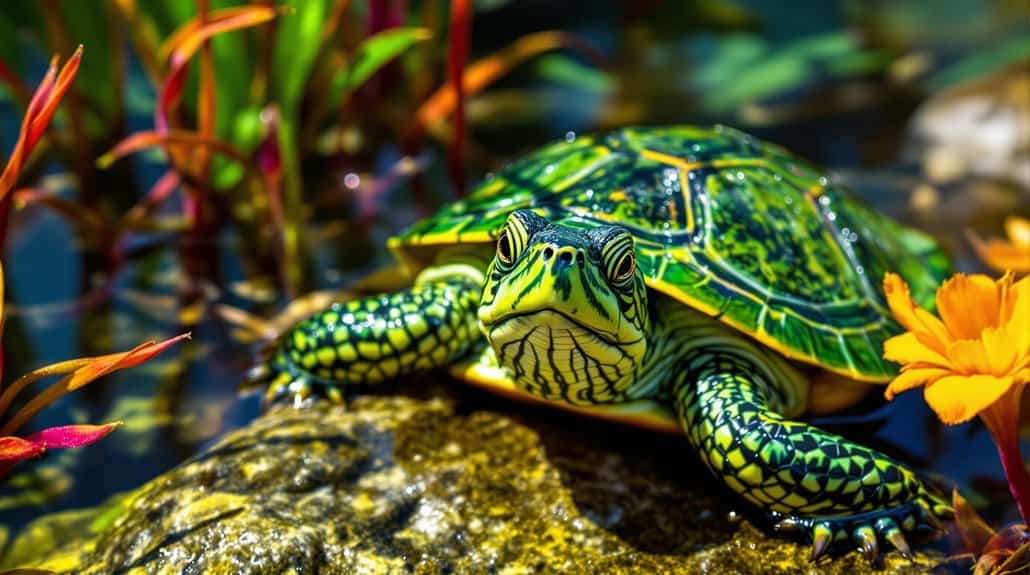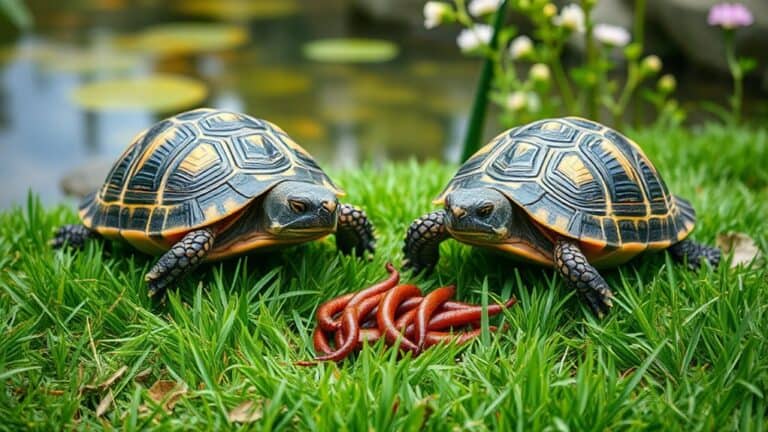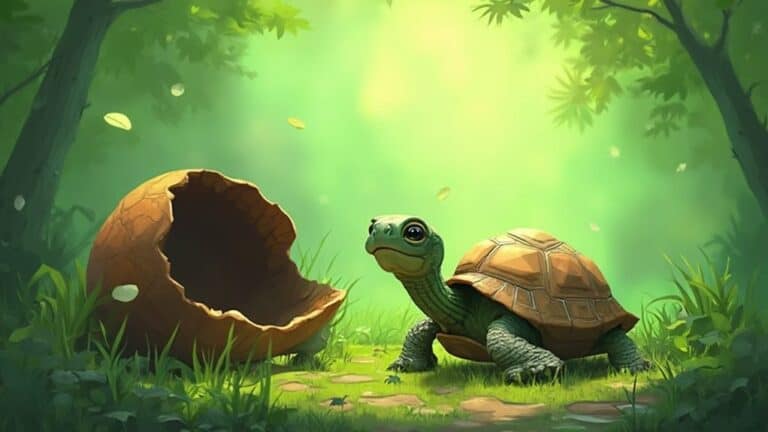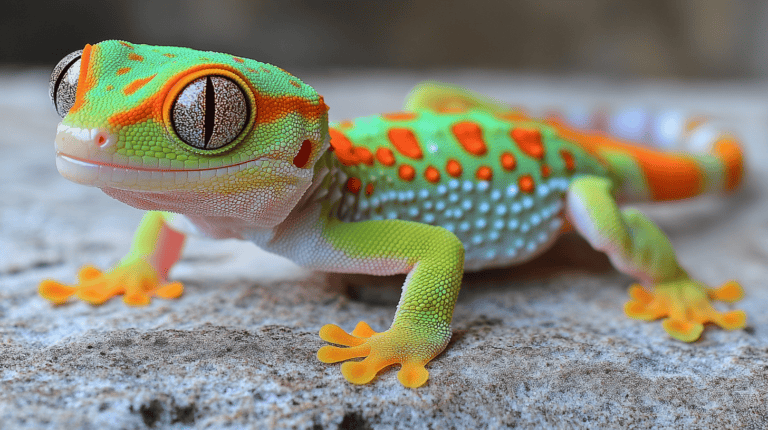Are Turtles Poisonous
Not all turtles are like cuddly plush toys—some can be downright dangerous because of their hidden toxins! It’s true! Certain turtles, like Hawksbill and green sea turtles, can pack a punch of poison. This sneaky toxin can give you symptoms like nausea and dizziness—yikes! Plus, just when you thought you could munch on turtle meat, some types are risky, even if they look healthy. So, while most turtles are harmless, it’s best to admire them from afar, just like that quirky uncle who makes awkward jokes at family gatherings. Stick around, and I’ll share more turtle trivia that’ll amaze you!
Table of Contents
Key Takeaways
- Not all turtles are poisonous, but some species can pose health risks to humans.
- Chelonitoxism, caused by toxins in turtle meat, can lead to symptoms like nausea and vomiting.
- Certain turtles, like hawksbill and green sea turtles, are known to carry harmful toxins.
- Healthy-looking turtles can still harbor toxins, making them unsafe for consumption.
- Cultural beliefs may lead to turtle meat consumption without awareness of potential poisoning risks.
Understanding Turtle Toxicity

When it comes to understanding turtle toxicity, it’s essential to recognize that not all turtles are poisonous, but some can pose serious health risks. Imagine munching on a turtle taco, only to find out it’s packed with turtle toxins! Yikes! The sneaky little culprits are phycotoxins, which turtles gather from their food, especially during those pesky algal blooms. In fact, the exact toxins causing chelonitoxism remain unknown, but scientists believe they may come from algae.
If you’re ever feeling queasy after eating turtle, you might be experiencing chelonitoxism symptoms. Think nausea, vomiting, and some serious bellyaches. Not fun, right? You could even end up dizzy or lethargic, and that’s not how you wanna spend your day! In fact, there have been 89 recorded deaths associated with this rare food poisoning, mainly in southern South Asia.
And here’s a twist: it’s not just the turtles that are affected! Humans can be in danger too, especially kids and the elderly. So, if you wanna stay healthy and liberated, it’s best to skip the turtle meat altogether! Let’s celebrate these amazing creatures by protecting them instead of putting ourselves at risk. Remember, knowledge is power, and knowing about turtle toxicity helps us make smarter choices while keeping our bellies happy!
Dangerous Turtle Species
Some turtles can be downright dangerous, and it’s crucial to know which species pose the biggest risks. Imagine this: you’re by the water, enjoying the sunshine, and suddenly you spot a Snapping Turtle! These guys are known for their fierce turtle behavior. With powerful jaws that can bite through bone, they’re like the ninjas of turtle habitats. If you’re not careful, they might think you’re a threat!
Then there’s the Alligator Snapping Turtle, the heavyweight champ of the turtle world. With a bite strong enough to take off fingers, it’s a true force of nature. And don’t let their size fool you! Softshell Turtles might look smooth and harmless, but they can deliver painful bites if you handle them wrong. Even the little Musk Turtle packs a punch with a bite that’ll leave you wincing! Interestingly, many of these turtles, like the Loggerhead Sea Turtles, are classified as Vulnerable due to various threats, including fishing gear entanglement. These turtles can grow up to 3.5 feet in length and weigh up to 350 pounds!
Loggerhead Sea Turtles are gigantic, growing up to 5 feet long! While they aren’t aggressive, their powerful jaws can do some serious damage. So, whether you’re at a lake or the ocean, remember: respect these turtles, and keep your distance! They might just be the most dangerous creatures you never knew you’d encounter!
Turtle Bites and Injuries

Turtle bites can be more serious than many people realize, especially when it comes to species like snapping turtles. Imagine that bite force! It’s like getting chomped by a mini dinosaur—up to 1,872 Newtons! Ouch! That’s enough to make anyone think twice about turtle bite prevention. Turtles often bite when they feel threatened or mishandled, so it’s super important to treat them with respect. Notably, during mating season, male loggerhead turtles may exhibit increased aggression, which can lead to biting incidents.
If you ever get bitten, don’t panic! Turtle injury treatment is key. Clean the wound thoroughly and seek medical attention if it’s serious. Trust me; you don’t want to mess around with turtle bites! In fact, a case report documented a near total amputation from a bite by an alligator snapping turtle, emphasizing the seriousness of these injuries.
And remember, turtles can get hurt too! Many face injuries from boats or other dangers. So, when you’re near them, be cautious. Don’t forget to look before you leap into the water!
Let’s keep our cool and respect these fascinating creatures. They’re not just cute; they’re part of our ecosystem. So, let’s spread the word about turtle bite prevention and guarantee we’re all safe while enjoying these magnificent animals. Happy turtle watching, everyone!
Conservation and Threats
Conserving turtle populations is essential, as these ancient reptiles face numerous threats that jeopardize their survival. Imagine a world without turtles—yikes! That’d be like pizza without cheese! Sadly, about 20% of turtle species are critically endangered. Habitat protection is super important, especially since coral reefs and seagrass are disappearing faster than your favorite snack at a party! Sea turtle populations globally have severely reduced from historical levels.
So, what can we do? Conservation strategies are key. Organizations like WIDECAST and SeaWorld work tirelessly to keep our shelled friends safe. They tackle pollution, overexploitation, and even the impacts of climate change. It’s a big job, but together, we can help! In fact, 75.0% of species in Asia are classified as threatened, highlighting the urgent need for action.
Did you know that all six species of Caribbean sea turtles are struggling? That’s a serious bummer! But here’s the good news—regulations like CITES help protect them by controlling international trade. It’s like a superhero team for turtles!
Let’s rally together, folks! Every small action counts. Whether it’s cleaning up beaches or spreading the word about these amazing creatures, we can all make a difference. Let’s guarantee that turtles can swim freely and thrive for generations to come! Turtle power!
Misconceptions About Turtles

As we work to protect turtle populations, it’s important to address some common misconceptions about these remarkable creatures. Many people believe all turtles are safe to eat, but that’s a big turtle myth! The truth is, some turtles can be dangerous. Here are a few facts to chew on:
- Chelonitoxism can make you sick, and it doesn’t matter if the turtle meat is cooked or raw!
- Certain species, like the hawksbill and green sea turtles, are notorious for causing poisoning.
- Even healthy-looking turtles can carry hidden toxins that can harm us! Children and pets are particularly vulnerable to the toxins. Additionally, toxins may originate from poisonous algae consumed by turtles, which can lead to serious health risks.
Cultural beliefs sometimes lead folks to enjoy turtle meat without realizing the risks. I mean, who’d think a fun dinner could turn into an adventure of nausea or worse? It’s no joke!
The symptoms can range from itching and vomiting to serious stuff like respiratory failure. So, let’s spread the word! We need to educate ourselves and others, not just for our safety but for the turtles too. Let’s break free from these myths and protect our shelled friends together!
Conclusion
So, while some turtles might have a bit of a toxic twist, most are just gentle shelled pals! Remember, they’re more about slow and steady wins the race, not biting your head off like a cartoon villain. Keep an eye out for those tricky species, though! Let’s protect these lovely creatures and enjoy their quirky ways. After all, life’s a beach when we appreciate our turtle buddies, swimming along in their own unique groove!







